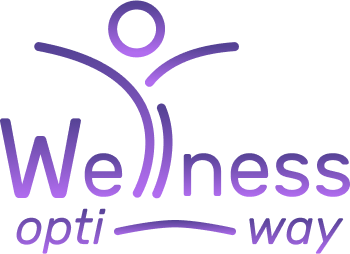People taking medications for ADHD, or attention-deficit hyperactivity disorder, may face disruptions in accessing treatment after the arrests of two executives of a telehealth company that distributed such drugs to adults across the United States.
On Thursday, the US Centers for Disease Control and Prevention issued an official health advisory warning about a “potential disrupted access to care among individuals taking prescription stimulant medications and possible increased risks for injury and overdose.”
Around the same time, the US Department of Justice announced a federal health-care fraud indictment against two executives from the digital health company Done Global, whose website describes it as “making high quality psychiatric chronic care management more accessible and affordable for patients.”
The indictment’s effect on patients “is unknown at the time,” according to the CDC’s advisory.
“Patients who rely on prescription stimulant medications to treat their ADHD and have been using this or other similar subscription-based telehealth platforms could experience a disruption to their treatment and disrupted access to care,” the advisory said. “A disruption involving this large telehealth company could impact as many as 30,000 to 50,000 patients ages 18 years and older across all 50 U.S. states.”
Ruthia He, the founder and CEO of Done Global Inc., was arrested in Los Angeles on Thursday and accused of participating in a scheme to distribute Adderall over the internet, conspire to commit health-care fraud and obstruct justice, according to the Justice Department’s announcement. The company’s clinical president, David Brody, also was arrested in San Rafael, California.
The Justice Department claims that He and Brody generated more than $100 million in revenue by arranging for the prescriptions of more than 40 million pills, targeting “drug seekers” and instructing prescribers to prescribe stimulants to patients even if they didn’t qualify.
“As alleged, these defendants exploited the COVID-19 pandemic to develop and carry out a $100 million scheme to defraud taxpayers and provide easy access to Adderall and other stimulants for no legitimate medical purpose,” Attorney General Merrick Garland said in a news release. “Those seeking to profit from addiction by illegally distributing controlled substances over the internet should know that they cannot hide their crimes and that the Justice Department will hold them accountable.”
Naomi Chung, Brody’s attorney, said he had pleaded not guilty to all counts. “Dr. Brody worked to promote access to medical treatment for those with ADHD in the face of both widespread stigma and the unprecedented challenges of a global pandemic.”
The arrests mark the Justice Department’s first criminal drug distribution prosecutions related to prescribing via telemedicine through a digital health company, the agency said. If convicted, He and Brody will face a maximum penalty of two decades in prison.
Last year, a CDC study found that prescriptions for stimulants often used to treat attention-deficit/hyperactivity disorder surged during the pandemic, especially among adults. Between 2016 and 2020, the share of the population that had filled a prescription for a stimulant drug held relatively steady. But there was a large increase in 2021, with prescription fills jumping more than 10% across most age groups.
The new CDC advisory noted that there is an ongoing prescription drug shortage in the United States involving several stimulant medications commonly prescribed to treat ADHD, a brain disorder that can make it difficult to concentrate or control impulsive behavior. It’s estimated that ADHD affects about 4% of adults and about 10% of children in the US. About one-third of children diagnosed with ADHD retain the diagnosis into adulthood.
“Patients whose care or access to prescription stimulant medications is disrupted, and who seek medication outside of the regulated healthcare system, might significantly increase their risk of overdose due to the prevalence of counterfeit pills in the illegal drug market that could contain unexpected substances, including fentanyl,” according to the CDC advisory.
“Given the national drug overdose crisis and threats associated with the illegal drug market, individuals struggling to access prescription stimulant medications are urged to avoid using medication obtained from anyone other than a licensed clinician and licensed pharmacy,” the advisory said. “Health officials and healthcare providers may need to assist affected patients seeking treatment for ADHD and should communicate overdose risks associated with the current illegal drug market as well as provide overdose prevention education and mental health support.”
The CDC advisory also warned that without treatment, ADHD is associated with social and emotional impairment and a higher risk of drug or alcohol use disorder, unintentional injuries such as motor vehicle crashes, and suicide.
“As more health care needs are met through telemedicine, we will not tolerate fraud schemes that seek to recklessly exploit digital technologies,” Christi Grimm, inspector general of the US Department of Health and Human Services, said in the Justice Department’s announcement. “We will continue to work with our law enforcement partners to protect the enrollees of federal health care programs by ensuring that requirements for the appropriate, legal prescribing of stimulants and other drugs are always met, and those who choose to violate them are held accountable.”
